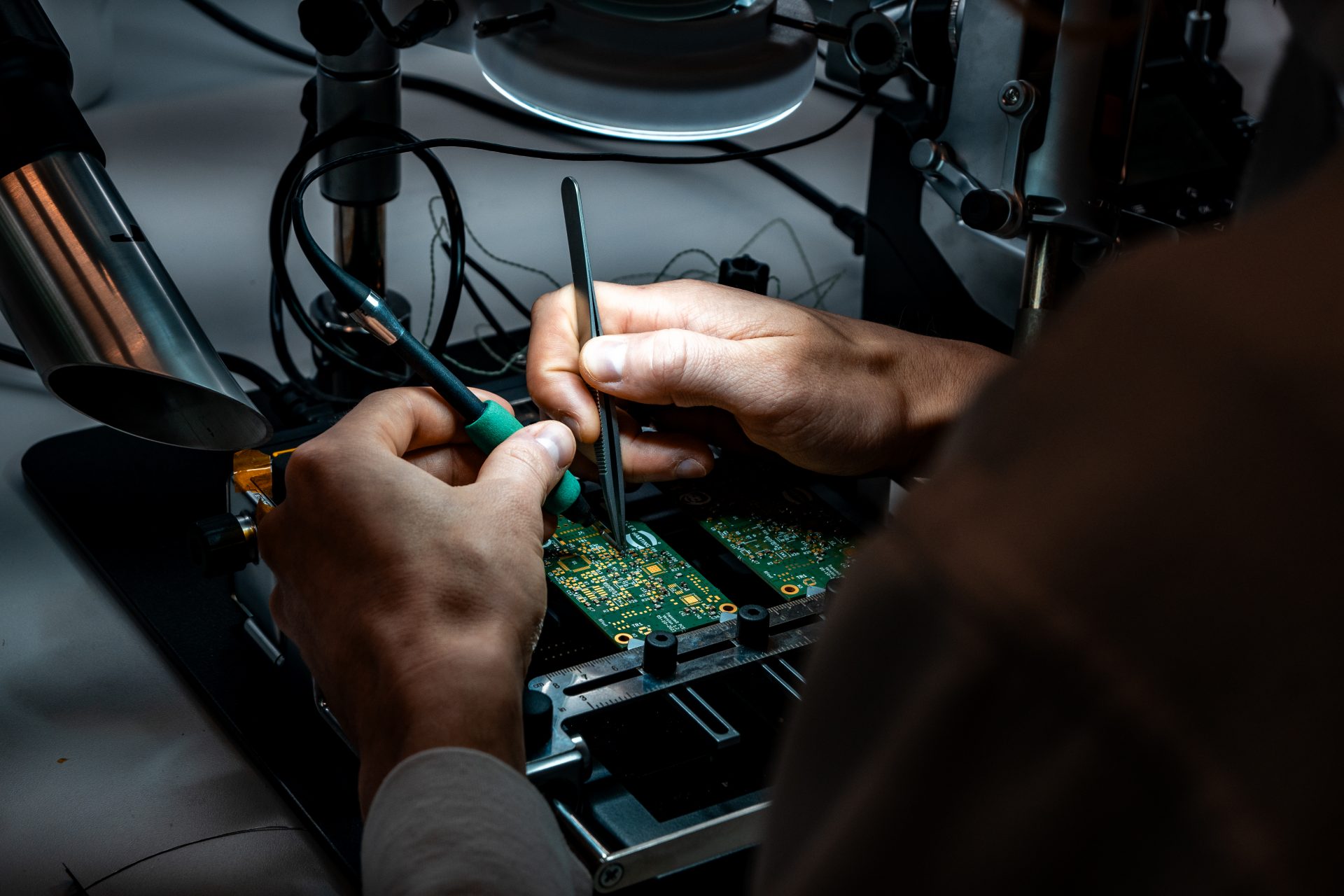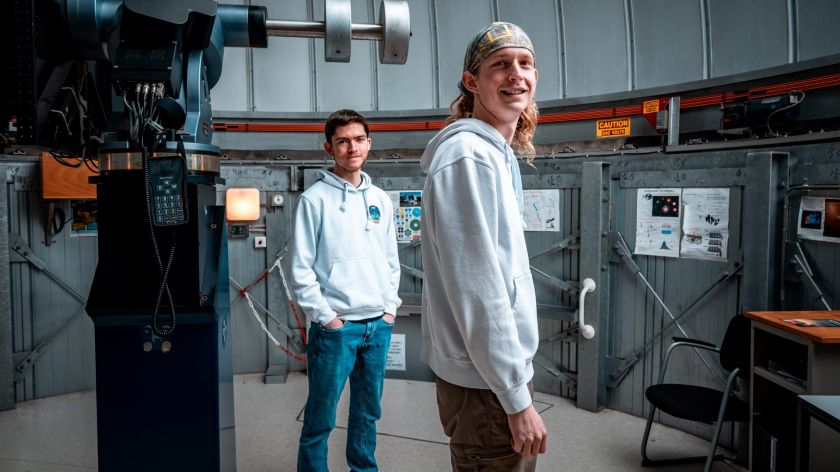Nijmegen students launch a rocket into the sky in northern Sweden
-
Sam van den Ende en Daan Kapitein. Foto: Diede van der Vleuten
A group of students from the Faculty of Science will be launching a rocket into space to collect data next week in the far north of Sweden. With the experiment, the Nijmegen students aim to investigate how they can better track the rocket during its flight.
Students Sam van den Ende (23) and Daan Kapitein (25) hope it will be very cold when they arrive in Kiruna next Monday after a two-day train journey. ‘After all, we’re going to the Arctic Circle, so it would be nice if it’s a bit cold,’ says Daan. However, 35 degrees below zero, which the thermometer showed a few weeks ago in Lapland, is too cold: the rocket could freeze in those temperatures.
One part of the rocket consists of material that the students designed themselves at the Radboud Radio Lab in the Huygens building, such as three circuit boards the size of a bank card and a box with a cosmic ray detector. The Eindhoven University of Technology is also involved in the project, taking on part of the financing. On the outside of the rocket are small antennas that emit waves and are in contact with various antennas on the ground.
Radio waves
The underlying goal of this construction, explains master’s student in particle/astrophysics Sam van den Ende, is to develop an alternative to Global Navigation Satellite Systems (GNSS). The current system only measures the rocket’s position once per second. ‘That’s not very accurate, because the rocket reaches speeds of up to 1 kilometer per second,’ says Sam, who is responsible for the project’s software. ‘That’s why we’ve attached a transmitter to the rocket that emits radio waves. By measuring those waves at different locations on the ground, we can calculate afterwards exactly where the rocket was during the flight.’
This principle of location determination comes from astronomy, explains team leader Daan, who is studying earth sciences at Utrecht University. ‘It’s based on how telescopes work in large groups, for example, for creating the image of the black hole.’

When the rocket goes up, the students will be in a control center about a kilometer away from the launch pad. If all goes well, the rocket will fly roughly 80 kilometers high into space and land about 40 kilometers away on Earth.
What’s the worst thing that could happen? ‘The rocket could explode,’ says Sam. ‘That has happened in the past with experiments from other teams. But we are confident that it will turn out fine.’
No competition
The launch is part of the European Rexus/Bexus program, a joint initiative of the Swedish, German, and European space agencies. Student teams from various European countries participate, but unlike, for example, the World Solar Challenge, there is no competition involved. ‘There is quite a bit of camaraderie between the teams,’ says Daan. ‘For example, it’s quite normal to borrow equipment from each other. Last time, we also helped the Greek team with their electronics.’
In addition to the localization experiment, the Nijmegen students are conducting a second experiment with cosmic radiation. There are a lot of particles in space that are stopped by the atmosphere, Daan explains. ‘There are also strange effects where those particles break apart in the atmosphere. We have built an instrument that is supposed to measure those things and tell us where they come from.’
‘The only thing we do during busy periods is sleep and work on our rocket’
When the students return to the Netherlands after two weeks in Sweden, they will have to work with the collected data. The goal is to write papers and present them at various conferences. They don’t receive study credits for this project. ‘We’re just doing it for fun, and of course, it helps your career,’ says Sam.
Participating in Rexus is time-consuming, Daan explains. On average, during the week the students spend forty hours on the project alongside their studies; during busy periods, it can be up to a hundred hours. ‘At those times, the only thing we do is sleep and work on our rocket.’
Elk
Both students hope to continue in the aerospace industry later. ‘Sam and I would like to start a company that carries out small projects in aerospace, so we can maintain our freedom and keep it interesting,’ says Daan. ‘People who work with astronauts on the ISS, for example, have to follow a lot of procedures and checklists, which seems a bit dull to us.’
According to the students, they have learned much more from Rexus than just about aerospace. ‘From team management, soldering boards, and making circuit boards to posting videos on social media: we do everything ourselves,’ says Sam. ‘It’s never dull.’
As for whether there will be time to play tourist in Sweden, the students don’t know yet. In principle, they have one free day, but it’s likely to be filled with preparing experiments. ‘Moreover, we’re in northern Sweden, in the middle of nowhere,’ says Daan. ‘But I would like to see the Northern Lights. Or maybe an elk, that would be funny.’
Translated by Siri Joustra





